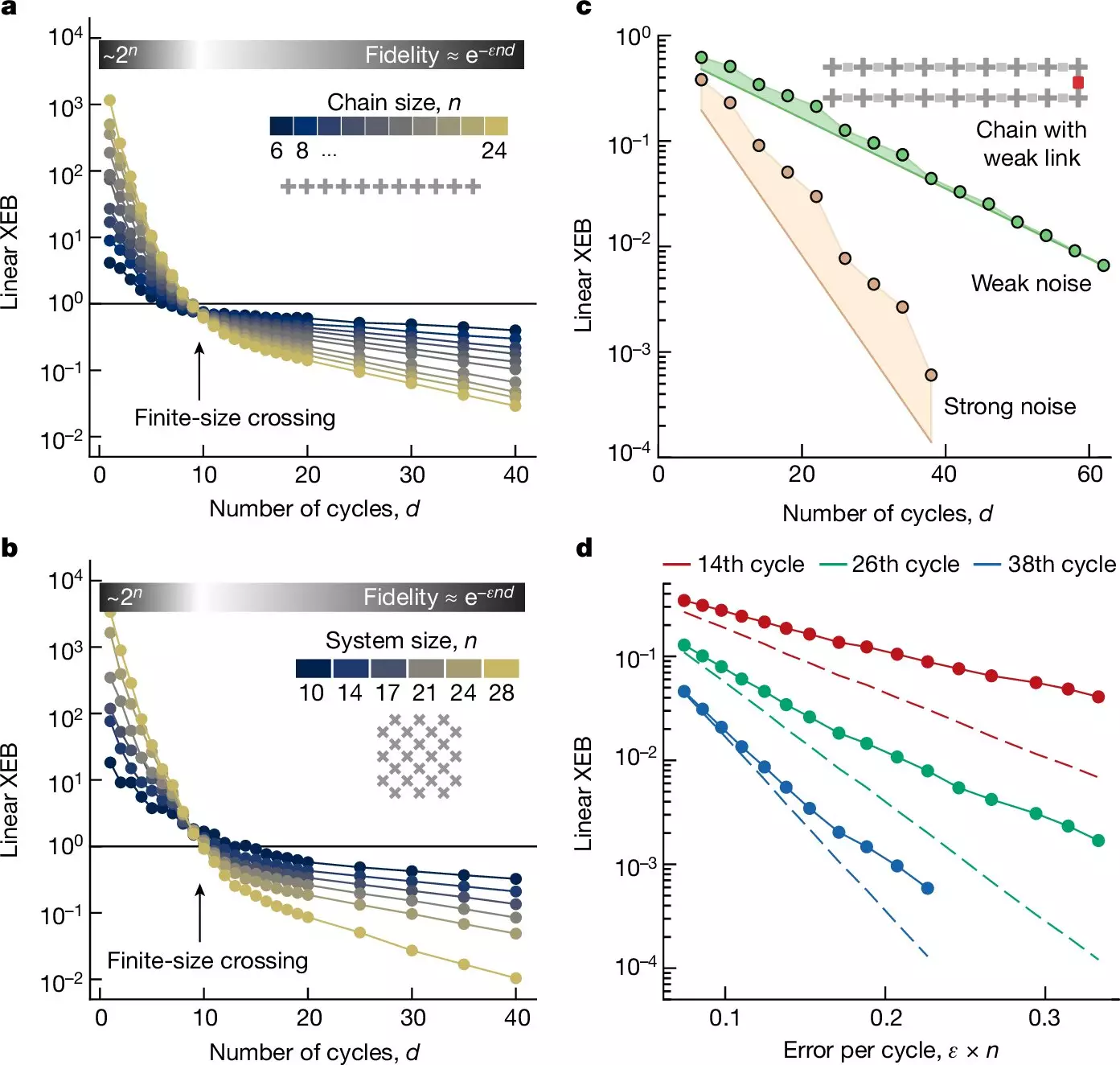For many years, the pursuit of effective quantum computing has been marred by a common enemy: noise. This interference hinders the operations of quantum chips and complicates their ability to outperform classical computers. A groundbreaking study by a team at Google Research, detailed in the journal *Nature*, reveals remarkable advances in addressing these challenges, particularly with their Sycamore quantum chip. By ingeniously reducing noise levels, the team has demonstrated that quantum processors can indeed surmount classical computing capabilities, at least in specific contexts such as random circuit sampling (RCS).
To comprehend the significance of this research, one must first grasp the concept of RCS. This computational technique, while seemingly simplistic, serves as a benchmark for assessing quantum performance. Essentially, RCS involves generating a series of random outputs, which classical supercomputers are efficient at performing but struggle to achieve the same level of depth and randomness when contextualized within quantum frameworks. Traditionally, quantum systems have not been able to effectively surpass real-world classical machines in practical applications, making RCS a critical metric for measuring advancements in quantum computing.
Noise comes from various environmental factors, including temperature fluctuations, electromagnetic radiation, and thermal vibrations, complicating quantum computations. The research team’s findings underscore the importance of minimizing these disruptions. Errors induced by environmental noise can result in incorrect calculations, adversely affecting a quantum computer’s performance. Consequently, researchers at Google concentrated on improving error correction techniques and methods to prevent such errors from occurring.
Innovative Strategies for Noise Reduction
A particularly notable strategy involved operating the quantum chip in near-absolute zero temperatures, lowering the background noise substantially. By achieving a striking reduction from a 99.4% error-free rate to an impressive 99.7%, not only were operational capabilities enhanced, but a genuine “quantum advantage” was attained. This critical leap illustrates the pivotal role that environmental conditions play in the overall efficiency of quantum processors—essentially reinforcing the notion that even minor changes in operating environment can lead to substantial breakthroughs.
Implications for Future Quantum Computing
This experiment marks a significant milestone on the pathway to operational quantum computers that can genuinely rival classical supercomputers—specifically for complex problems that would otherwise be intractable. Although it does not yet fulfill the long-hoped-for promise of quantum computing, this breakthrough demonstrates that scientists are edging closer to realizing a practical and effective quantum computing landscape. The advances achieved by Google’s engineers signal a hopeful trajectory for future research, motivating the scientific community to explore further innovations in noise reduction and error correction.
The strides being made by researchers, particularly at Google, illuminate the potential for quantum computing to evolve beyond its current limitations. By addressing the issue of noise—one of the most critical challenges in the field—engineers are not just enhancing existing technologies; they are redefining the future landscape of computation itself. As we venture deeper into the quantum realm, the implications of such advancements may ultimately reshape industries, delivering on the promise of technologies that can tackle problems far beyond the reach of conventional computing capabilities.


Leave a Reply
You must be logged in to post a comment.